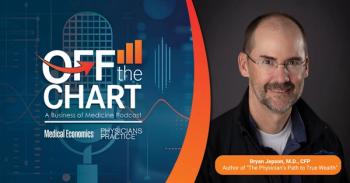
How the Practice of Medicine Has Changed
The art and practice of medicine has changed remarkably, yet the core tenet of medicine - caring for patients - remains what doctors do best.
Once, there was a time when healthcare was led by physicians rather than by acronyms; HMOs, RACs, ACOs. What a difference a few decades can make! My dad, who was a practicing OB/GYN for 37 years, is a good illustration of the many ways that medicine has reinvented itself. Here are a few of the many hats that dad wore as a small-town physician:
My dad, the cab driver. Dad was both surgeon and anesthesiologist when Miss Darlington, the CRNA, came to South Boston. She couldn't drive, so she made daily taxi rides to work. If my dad needed her assistance at night, or during the weekend, he added "Pick up Miss Darlington" to the pre-surgery checklist. Taking her home was part of the standard post-op care.
My dad, the blood bank. There was no blood bank, just a simple list. This list had phone numbers for all the folks in the community who could be counted on to drop whatever they were doing, to give a pint of blood to someone in need. There was never a blood shortage. Several years later, my mother and others on the list helped establish the county's own bloodmobile, which still serves my hometown to this day.
My dad, the builder. Remember the black countertops from the high-school science labs of the '60s? Plywood was treated with an odd epoxy resin to create a modern-day petrified wood. Dad and his partners used this same formula for the countertops in their lab. Whatever the secret sauce was, it really worked; those counters lasted more than 50 years, never showing signs of splintering, warping, or other degradation.
My dad, the barterer. Miss Moore was a wonderful lady who raised pigs out in the country. Every Christmas we'd go out to her farm and she'd give dad a cured country ham - far and away the best ham I have ever had. That's how Miss Moore paid dad. For those patients who could not afford to pay, bartering was a common way to say thank you.
My dad, the football VIP. Before cell phones and pagers, being on call meant staying at home or being at the hospital. There was one exception: high school football games. The on-call doctors got front-row parking in the gravel lot. If a patient came to the hospital in labor or with appendicitis, the police were dispatched to the game to get my dad or the surgeon. I knew my dad was well-respected, but his special parking was how I knew he was important.
My dad, the ER doctor. During dad's first decade in private practice, there were no emergency room physicians. Every doctor in town, including my dad, was part of the emergency room rotation. With dad doing that and being on call every other day and night, I still wonder when he and mom found time to make my three brothers and me.
The art and practice of "medicine" has changed remarkably, yet the core tenet of medicine - caring for patients - remains what doctors do best. It's what my dad did so well, and it's what you do best, when the acronyms stay out of the way.
Lucien W. Roberts, III, MHA, FACMPE, is a Virginia-based writer, speaker, and consultant. For the past 20 years, he has worked with physician practices in areas such as compliance, physician compensation, strategic planning, and billing/collections. He may be reached at Lucien.roberts@yahoo.com.How have you seen medicine change? Tell us at
This article originally appeared in the November/December 2013 issue of Physicians Practice.
Newsletter
Optimize your practice with the Physicians Practice newsletter, offering management pearls, leadership tips, and business strategies tailored for practice administrators and physicians of any specialty.









